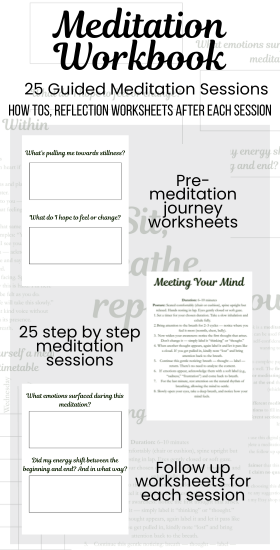What is an empath?
First of all, let’s find out if you’re an empath or not. If you feel like these next few sentences fit your character and how you feel, then there is a high chance you’re an empath. The core principle behind being an empath is that other people’s pain impacts you in a very deep way. You absorb their emotions to the point where you feel them yourself, and these emotions are so deep that they easily overwhelm you. Empaths are someone who can sense and relate to other people’s emotions and then take on those emotions too. Being an empath is very much a double edge sword: it can be great when the emotions are positive ones, but when it’s people close to you suffering then it can take a big toll on your own suffering.
There are two different kinds of empaths: cognitive empaths find it easy to understand why someone feels a certain way and affective empaths find it easy to feel what someone else feels.
Why being empathetic causes anxiety
The issue with being naturally empathetic to a lot of situations is that there is a very fine line between your own emotions, and those of someone else. This line gets easily blurred, and that can cause emotional confusion and instability that can lead to high levels of stress – thus anxiety. Beyond this, absorbing someone else’s energy can be emotionally draining which also increases general stress levels. Naturally, empaths are also very in touch with their own feelings, meaning that when they experience stress or anxiety, the anxiety is very pronounced and raw. Creating viscious cycle.
How to overcome anxiety due to being an empath
- Be self-aware. Being able to pinpoint the overwhelming rush of emotions before it arrives can help you gain time to use coping mechanisms to reduce the amount of stress you’ll feel. This could be by seeing a phone call from a relative going through a tough time and being able to do a quick breathing technique before answering the call.
- Use mindfulness. There a loads of techniques out there, here is a good list to get started with: Best Mindfulness Techniques to Reduce Stress. If you go to the top of this page, there’s a link for my books and journals – this will connect you to a great book that contains over 80 different techniques for reducing stress. Mindfulness is a really powerful tool that can combat anxiety of all forms, it can help you redirect your emotions and be able to use them for something more positive.
- Journal, check out my page on journaling for more information: Journaling for Stress Relief: How to Get Started.
- Set boundaries. Boundaries are so important for empaths. If you’ve tried mindfulness and journaling but you still feel very overwhelmed, it’s time to set boundaries. If there are people that aren’t necessary in your life that give you too much stress eg. toxic friends or partner, then cut those ties, if you’re often in social situations that leave you feeling tired, then give yourself more time alone.
- Go to therapy. Sometimes being an empath can come from things that happened during childhood (whether traumatic or not), and going through it can help you release blocked up anxiety and stress. This could reduce your symptoms of being an empath and allow you to feel more free.







